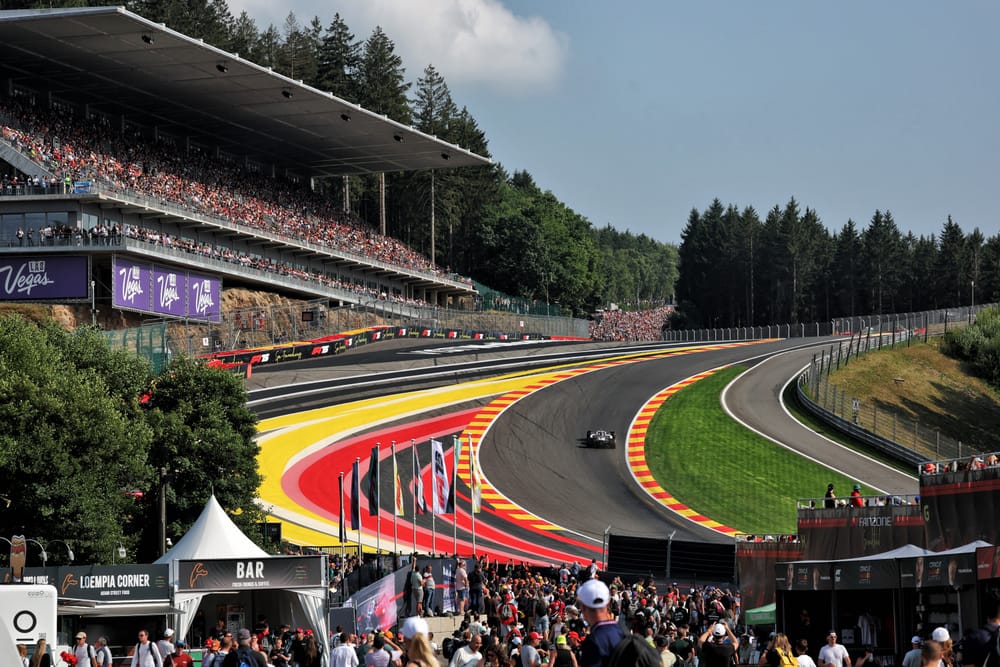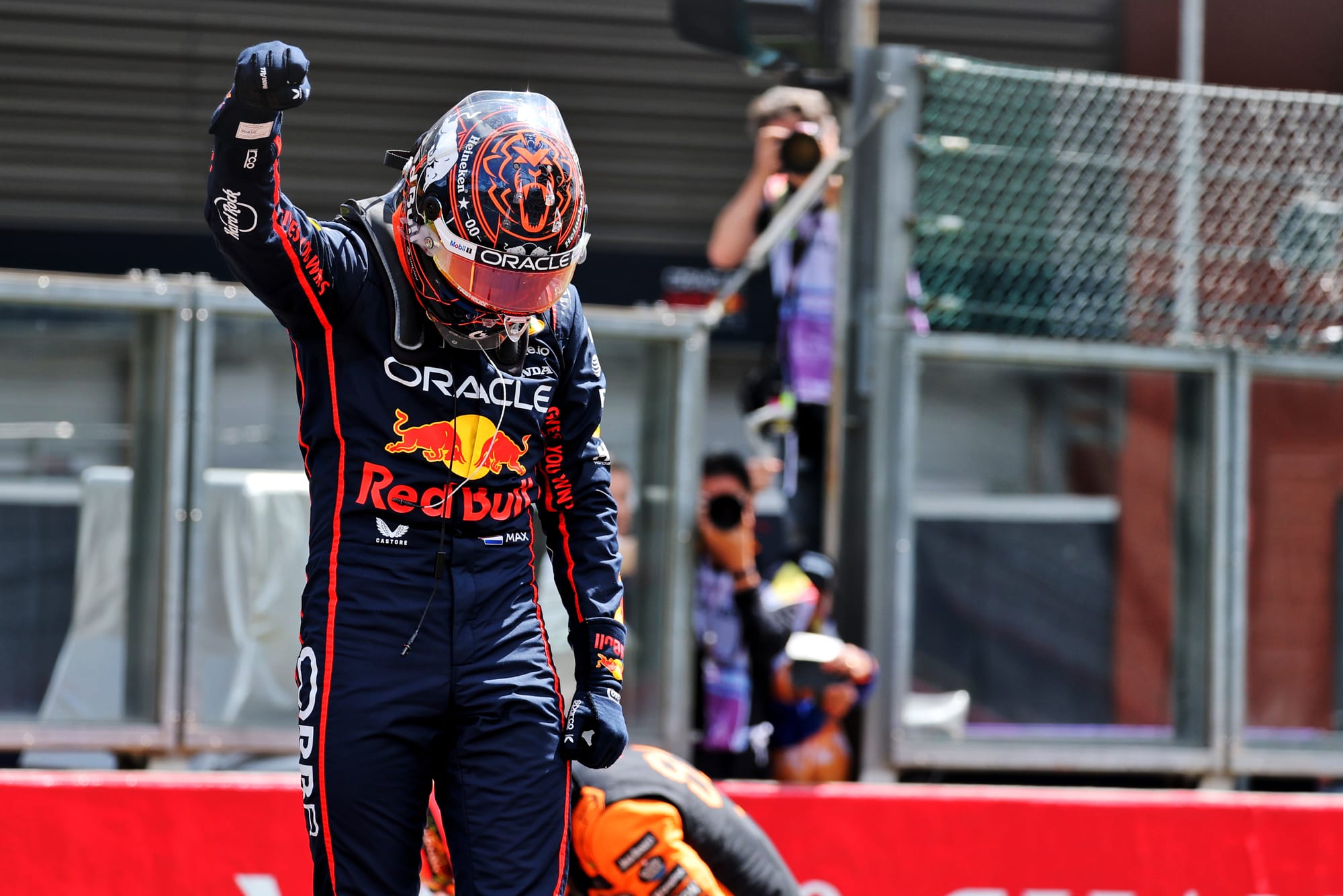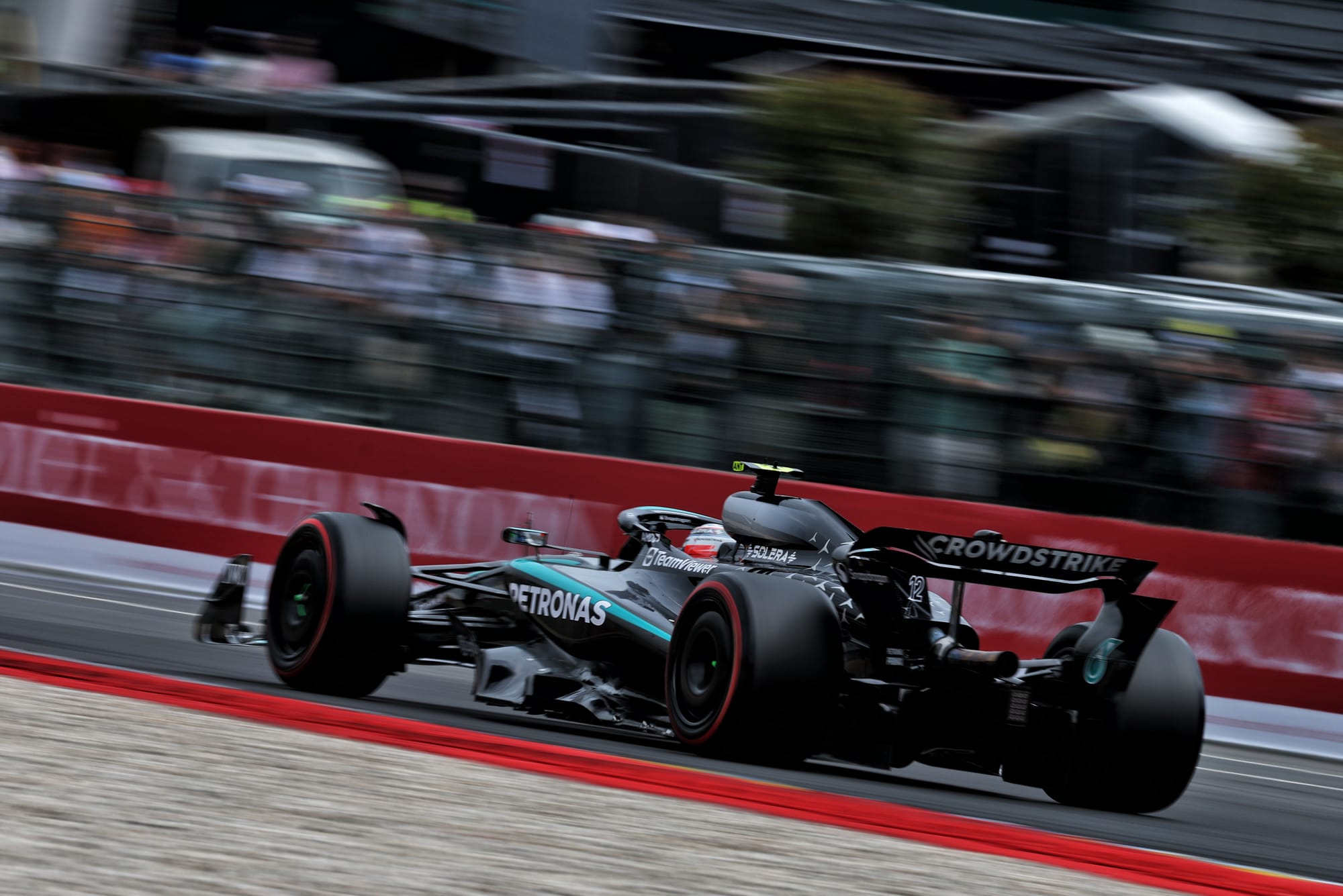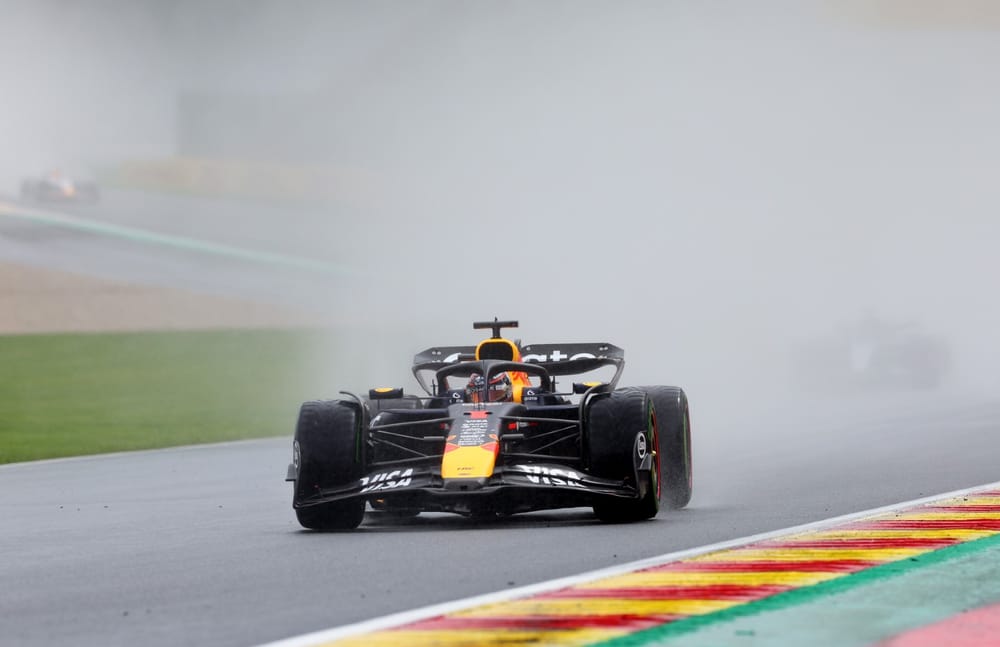Two different winners and a surprising number of talking points meant the Belgian Grand Prix was a lot more interesting than the races made it look.
Here's everything we learned at Spa.
What a post-Horner Red Bull looks like
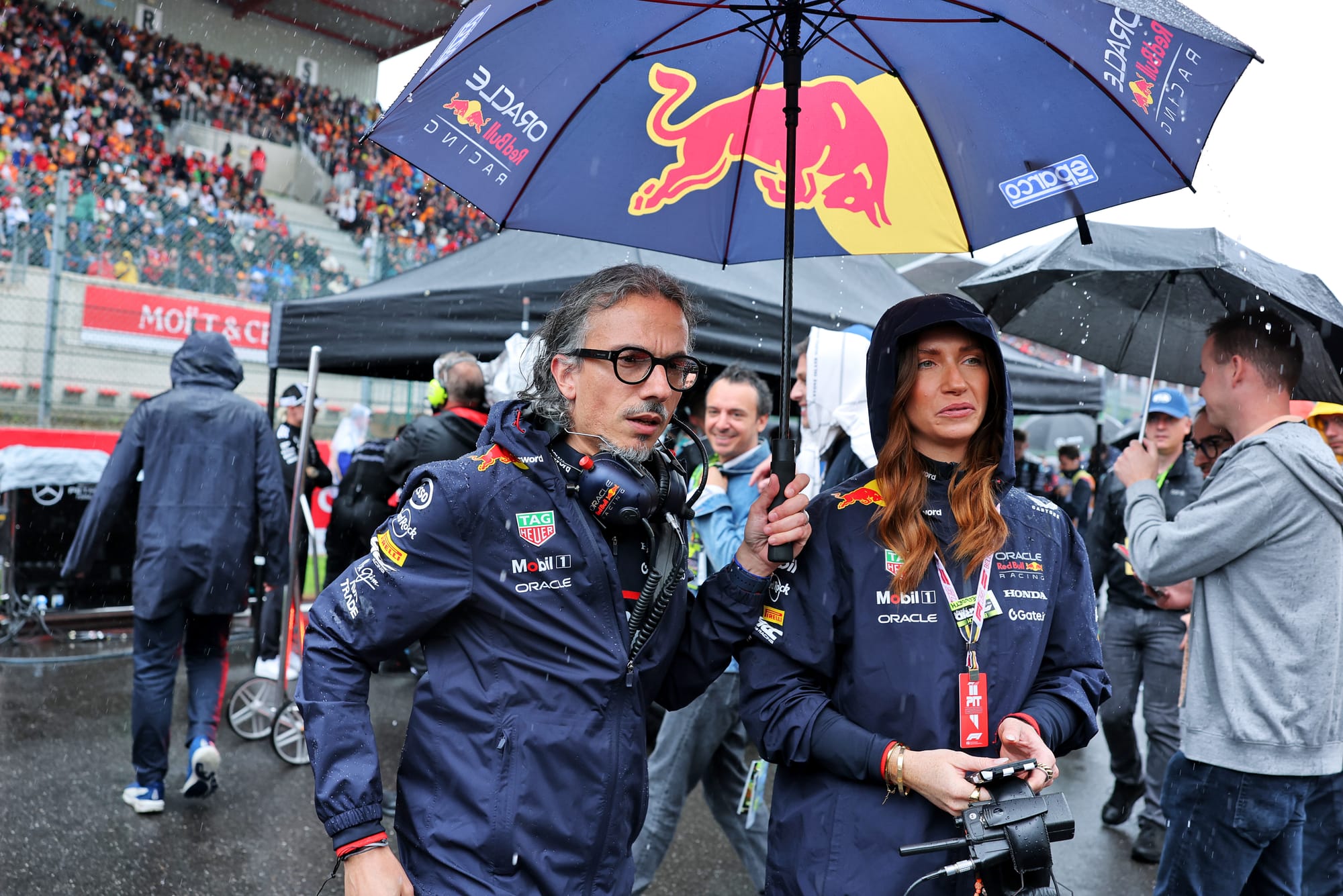
Red Bull's new team boss had a winning debut in the Spa sprint, although the grand prix itself was a less successful affair.
Still, Laurent Mekies' first weekend in charge passed without any flare-up, flashpoint, war of words, drama, or anything of the sort. It was a lot calmer than some of the Christian Horner days, but perhaps exactly what Red Bull and especially Mekies needed.
There were some whispers during the Spa weekend that Horner loyalists hadn't taken well to his ousting and the new way of working with centralised control from the Austrian parent company.
It might not mean anyone has a problem with Mekies per se; the reality is that it can be hard to get everybody on side immediately. Good results and performance will start to set that right.
And Mekies has said and done all the right things so far. He's been very calm, which has helped shift the narrative that Red Bull was in disarray. The team worked effectively for most of the weekend at Spa, and turned around a mid-weekend upgrade for Tsunoda.
Mekies also had a first test of how he might handle a team grievance. He expressed his surprise, politely but firmly, that the race wasn't started sooner, a decision that went against Red Bull and its set-up choices.
It was a hint that while he will probably not come bearing data traces and camera printouts like his predecessor when Red Bull feels wronged, Mekies won't shrink from saying what he thinks.
Mercedes has made a development mistake
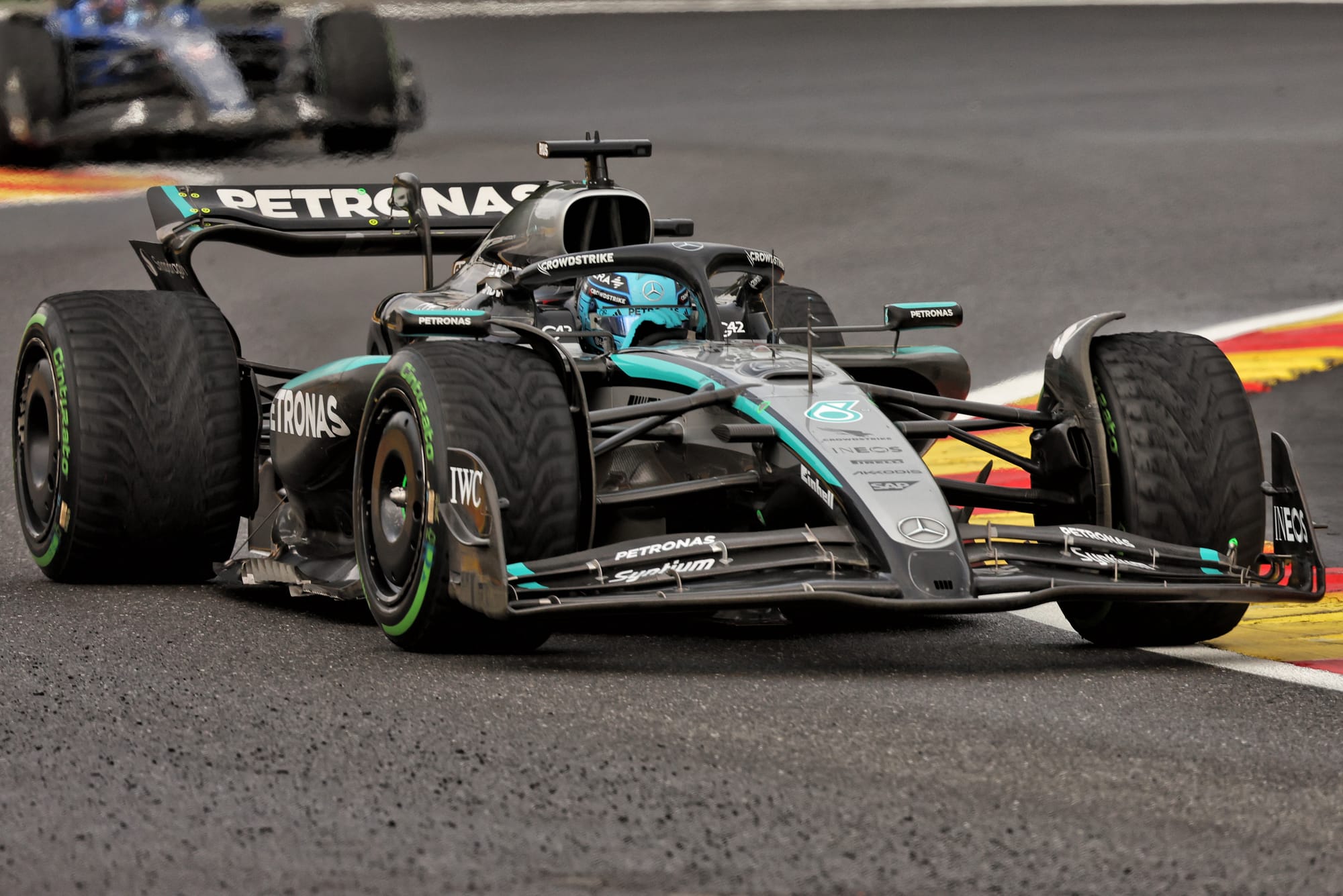
From looking like it had a car that was on par with the Red Bull at the start of the season as McLaren's main challenger, Mercedes has badly fallen away.
A year on from an on-the-road 1-2 for Mercedes at Spa, George Russell had a lonely run to fifth while Kimi Antonelli had the toughest weekend of his F1 career so far.
Suspicions point not to the team having simply fallen away amid the development war, but instead of it having taken a wrong turn with recent upgrades that have done something to the W16's handling characteristics.
This has resulted in a car that is proving much trickier to drive, especially with corner entry instability at the rear, and that is triggering more mistakes from its drivers.
Russell reckoned this may all be a consequence of the flexi wing clampdown that came into force for the Spanish GP in June.
He said Mercedes had gone in a "slightly different direction" to tackle that issue and that "clearly since that point we've taken a big step backwards".
The team has scheduled meetings at its Brackley base this week to try to get an understanding on what has gone wrong, and what areas of the car it may need to roll back on in a bid to give both its drivers a package that is less difficult underneath them.
Modern F1 and Spa are a poor combination
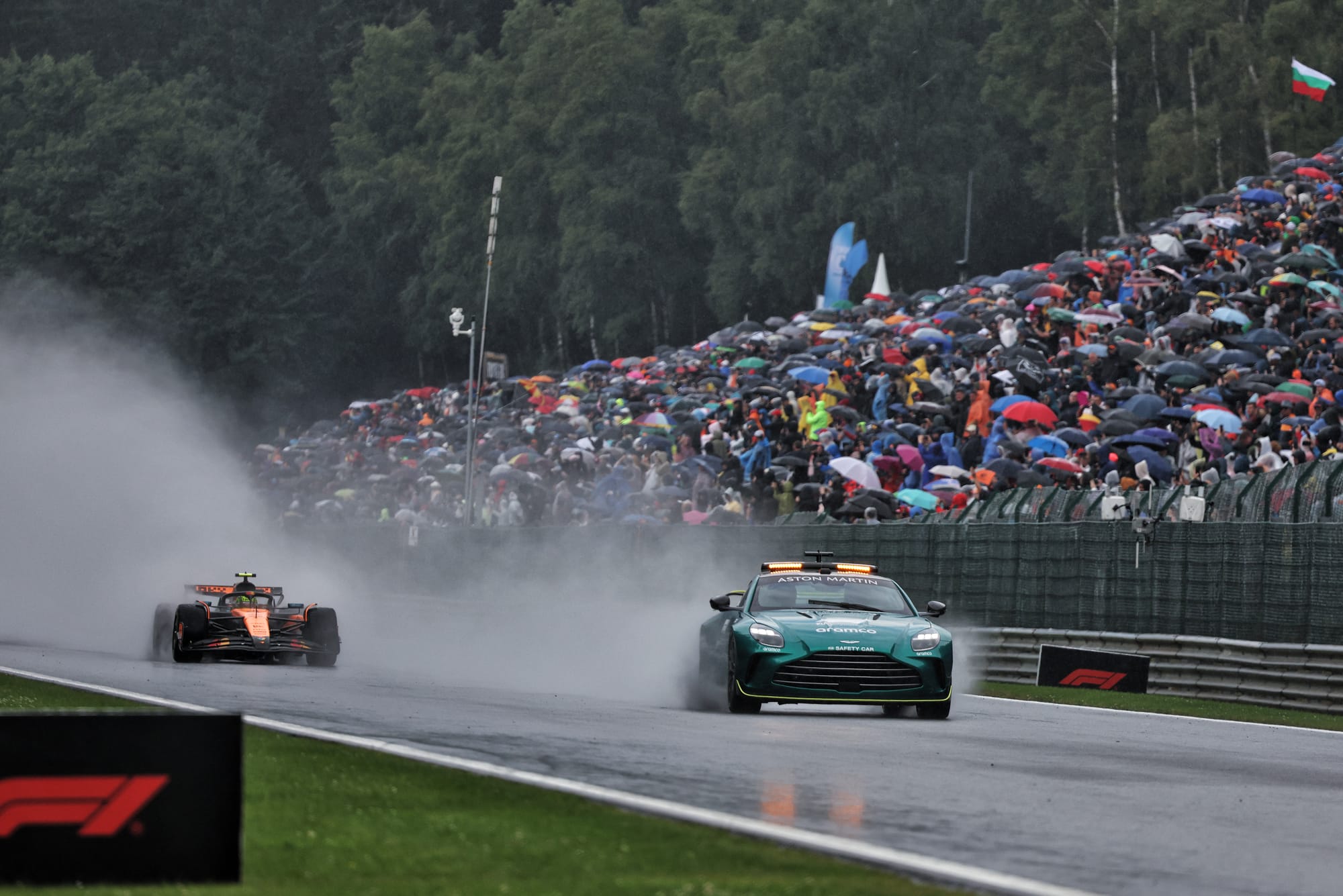
Painful as this is to say, Spa's compatibility with modern F1 has never seemed worse.
Qualifying at Spa is brilliant, and in the wet it's still a mighty challenge, but the two races F1 had this weekend were deeply underwhelming.
With very little in the way of overtaking, Saturday's sprint race was the weakest since a very static maiden sprint at the 2021 British GP.
Then Sunday showed the extent of the visibility problem here that is the enemy of good wet racing, especially with current F1 cars producing so much spray.
Even Lewis Hamilton, who was calling for the race to start earlier than it did, admitted Spa makes it feel like the drivers are "going through fog; I don't know what we're going to do to try and fix it".
Spa's already shifting to a rotated spot on the calendar. But as one team boss told The Race, if it keeps suffering from races being delayed or flirting with not happening at all because of the weather, even in the summer, it could lose its place permanently.
And even when the races are in dry conditions, F1 at Spa is a shadow of the past. The races feature little overtaking and DRS trains. We can only hope the 2026 cars will be better suited to such a legendary track.
Big Ferrari upgrade isn't enough
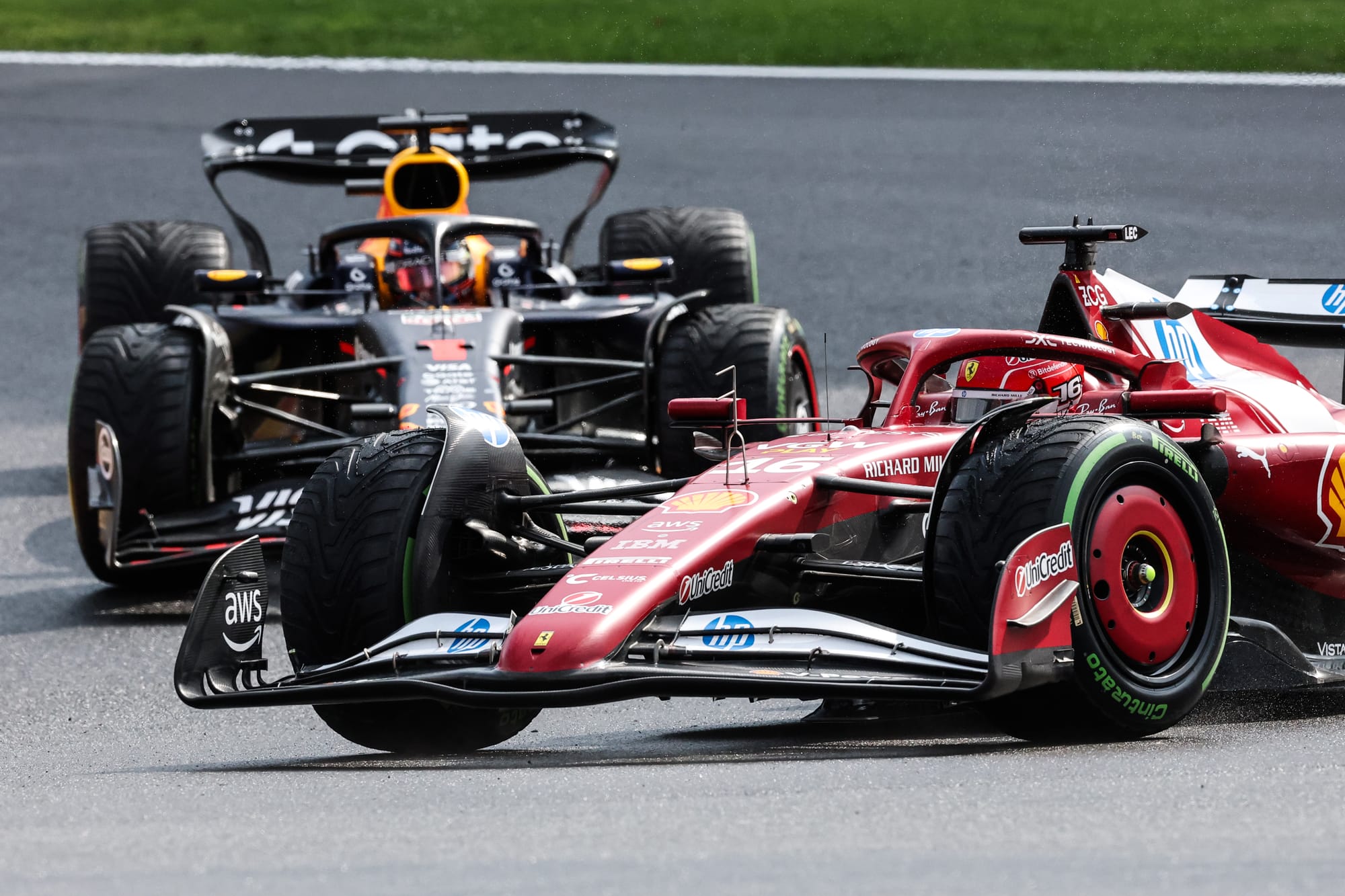
Ferrari's much-anticipated new rear suspension, designed to help the car run lower and access its full potential, made its debut at Spa, where Charles Leclerc used it to good effect to outqualify Verstappen's Red Bull and beat it to the podium.
In combination with the major floor upgrade Ferrari introduced in Austria, it was hoped the new suspension would realise the SF25's so-far disguised potential.
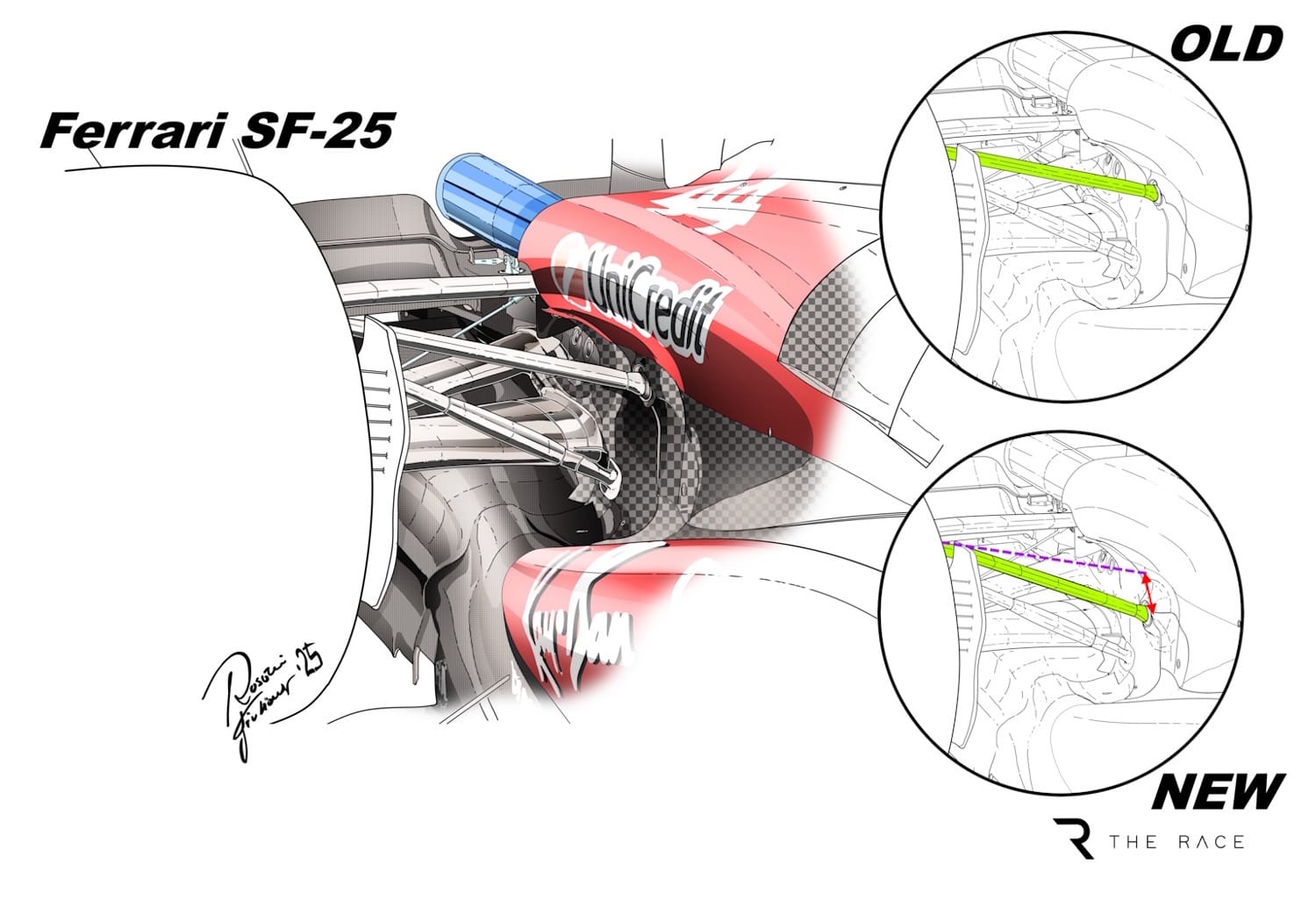
Leclerc said it definitely helped him beat Verstappen, who was defeated by a combination of Leclerc doing a better job in qualifying to get track position, then Leclerc hanging on in the damp first stint before the dry track suited his low-drag Ferrari set-up better.
But Leclerc's 20-second deficit to the winning McLaren showed Ferrari's car will not suddenly become a regular race winner.
And he was almost at pains to downplay the upgrade this weekend - because while Ferrari's got what it expected, Leclerc admitted it is still not enough.
Red Bull spoiled Tsunoda breakthrough

Yuki Tsunoda had a change of Red Bull car specification mid-weekend at Spa that sparked a big qualifying breakthrough - even though the end result was still the same.
Tsunoda's point-less run has now been extended to six grands prix and a sprint race. But at Spa he qualified seventh on the grid and was only 0.38s slower than Max Verstappen: the closest the second Red Bull has been to Verstappen at Spa since Daniel Ricciardo in 2018.
It was facilitated by Red Bull finally bringing Tsunoda onto the same floor specification as Verstappen in the middle of the weekend.
Although Tsunoda was still missing a little, like a new front wing, the extra floor performance immediately brought his best qualifying result for Red Bull yet. That is no coincidence.
Unfortunately, Red Bull botched his pitstop timing in the race, calling him in too late, so he had to do another lap on the intermediates. This dropped him out of the points and he could do nothing once stuck behind Pierre Gasly's extremely low-downforce Alpine in 10th.
There are still some issues for Tsunoda to work out, notably weaker race pace and some lingering tyre management uncertainties. And even if beating Gasly wasn't possible, getting picked off late on by Ollie Bearman and Nico Hulkenberg was probably avoidable.
Who sprints are most valuable for in 2025
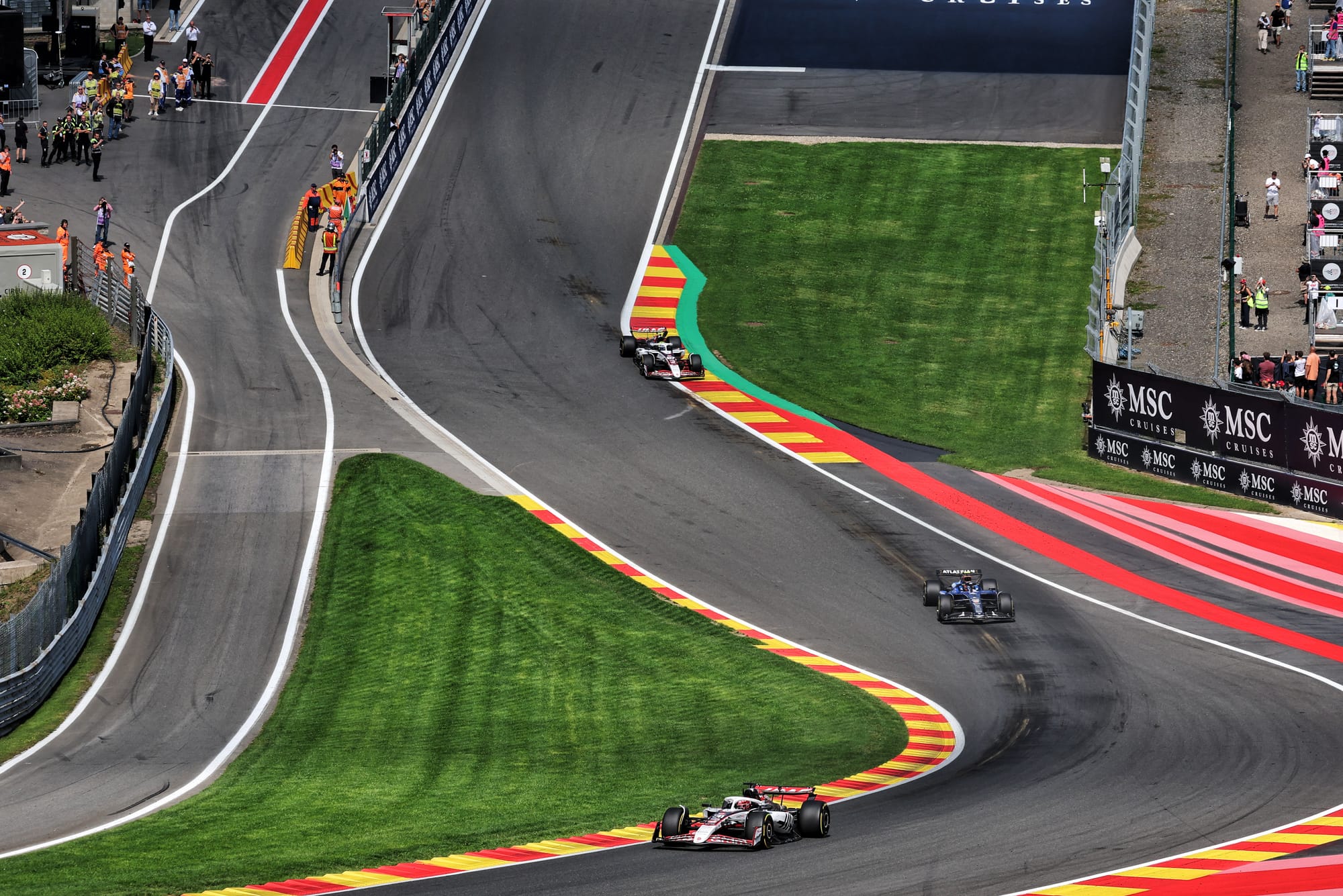
All but one midfield team has now finished in the points in a sprint race in 2025, and Spa illustrated how valuable this format could be for those fighting for fifth place in the constructors' championship.
Although the sprints are dominated by the big teams, and therefore the valuable positions are usually locked in, there have actually been quite a few opportunities for the best performing midfielders to grab good results.
At Spa, the big teams were particularly wasteful: Mercedes was out of the picture and Ferrari and Red Bull were both missing a car each. That's what allowed Haas, Williams and Racing Bulls all to finish in the top eight.
Haas and Williams scored their first Saturday points of the season in Belgium, with Haas enjoying a bumper haul of six points.
That's 17% of Haas's entire 2025 tally: easily the biggest share of any team. But next in that comparison is Aston Martin (11%) and Racing Bulls (9.8%).
Sprint points don't actually change the midfield championship fight yet, but there's a trend developing - which means the remaining three sprints in Austin, Brazil and Qatar could be a bigger factor than most think.
Wet races are a Haas weakness
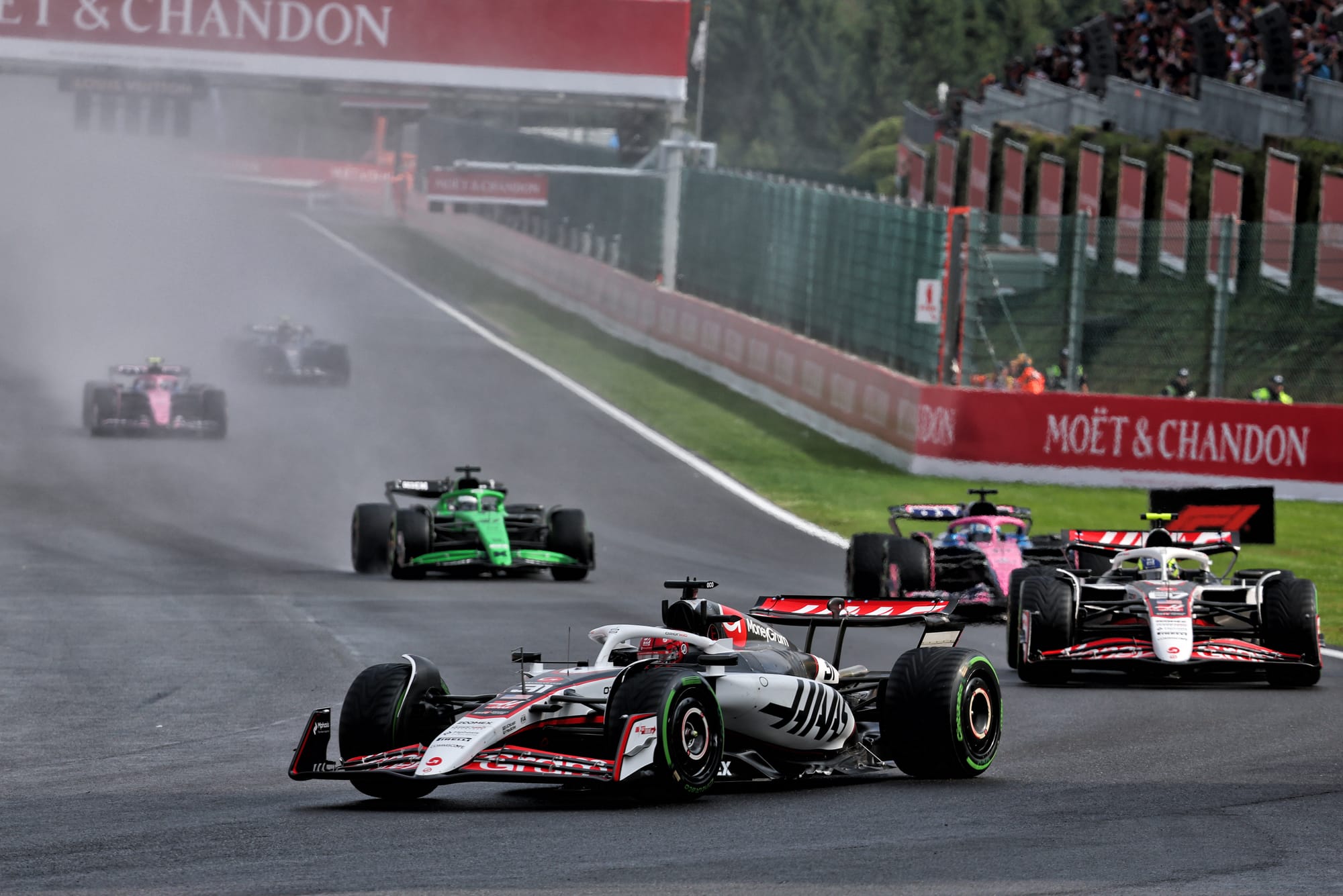
Haas team boss Ayao Komatsu spent the first two days at Spa repeating his belief that his team needs to make better strategic choices.
Especially now it has a very quick midfield car following an upgrade at Silverstone - where it was guilty of gambling too much chasing a big result in mixed conditions.
After a double-points haul in the Spa sprint, Haas showed its pragmatism by splitting its two cars' downforce levels for the grand prix to cover whichever way the conditions went.
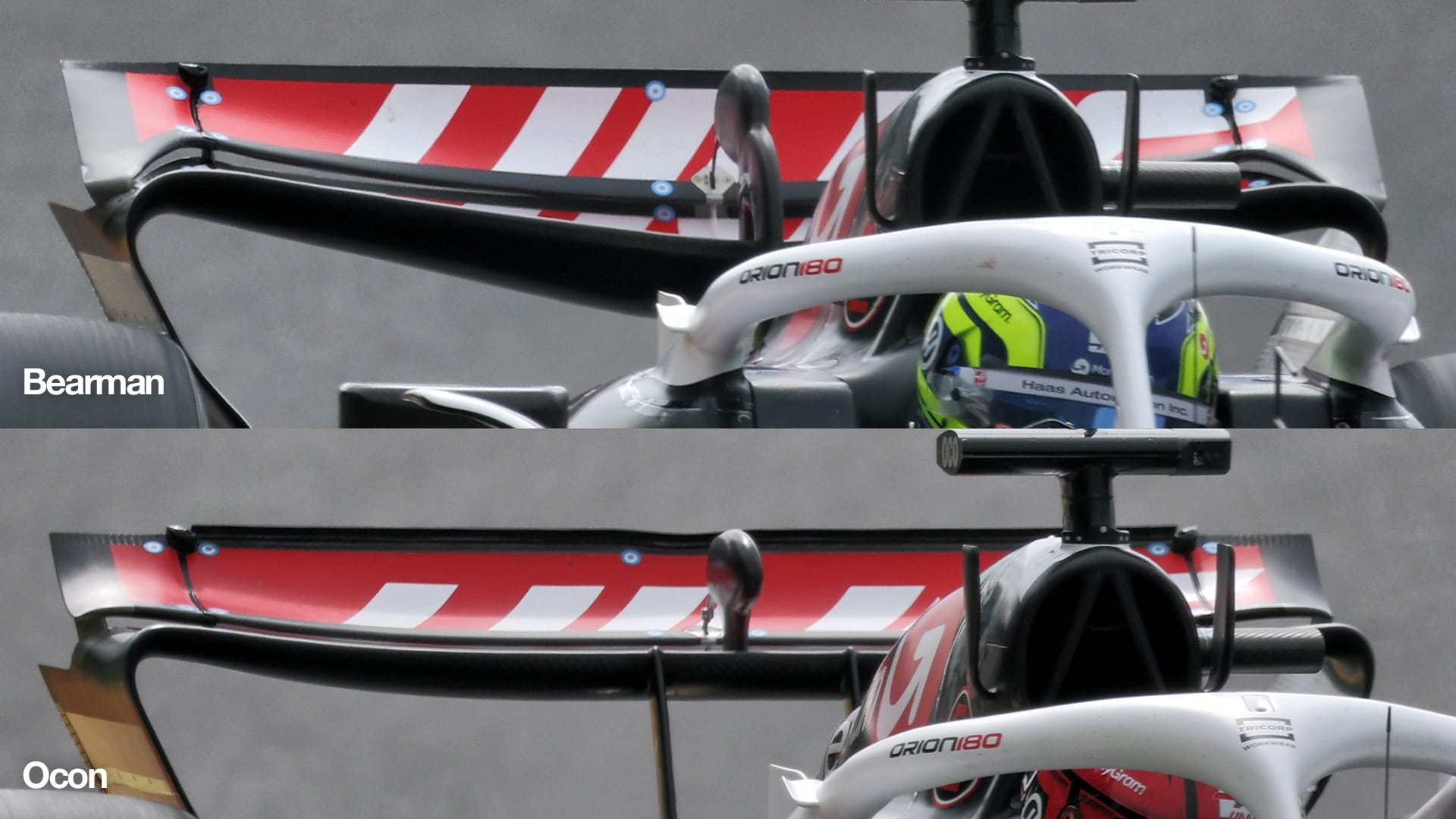
Ollie Bearman's likely run into the points was derailed by an engine glitch that dropped him out of the top 10. But Esteban Ocon wasn't in the picture because of another strategy error.
He bemoaned the call to pit coming too late, which left him adrift at the back of the pack and he failed to get back near the points.
That left Ocon lamenting exactly what Komatsu had hoped to address: "When it's wet, we don't put things together."
Antonelli is facing a confidence crisis
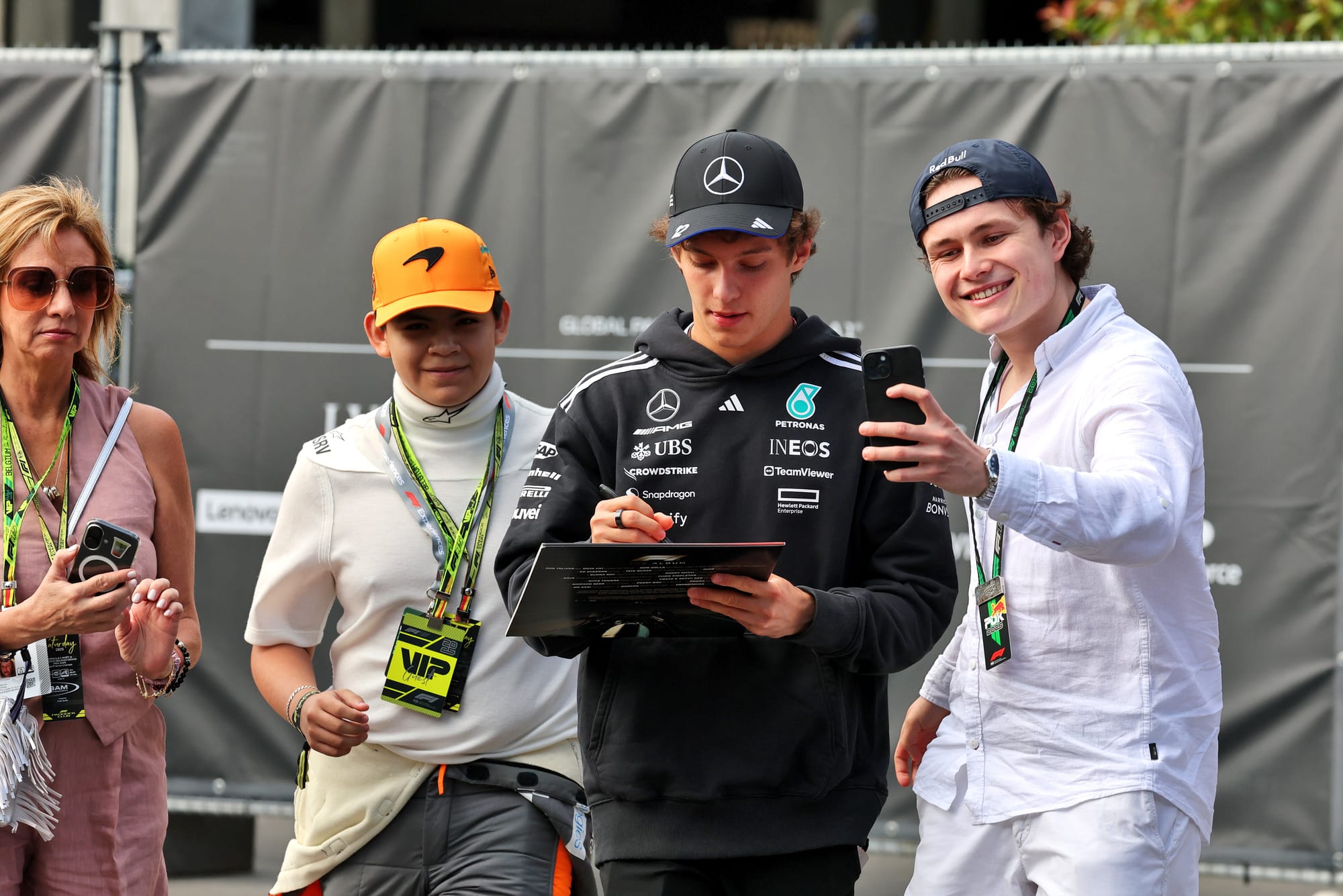
Antonelli's tough run got even worse at Spa, where the 18-year-old was slowest of all in sprint qualifying, 17th in the sprint itself and then suffered another Q1 exit in main qualifying.
Antonelli was distraught after that, feeling he had taken a backwards step since the start of the European season without the confidence to push the car to the limit.
He started Sunday's race from the pitlane with more downforce, but his progress stalled when the track dried out, leaving him 16th and without a point in six of the last seven weekends.
Antonelli has a more aggressive driving style than Russell, which he believes is only increasing the limitations of the Mercedes, and his attempts to drive differently end up feeling "very forced".
Over the coming races, Mercedes has a big task in helping Antonelli find his confidence, which seems worryingly low.
F1's midfield leader is back giant-killing
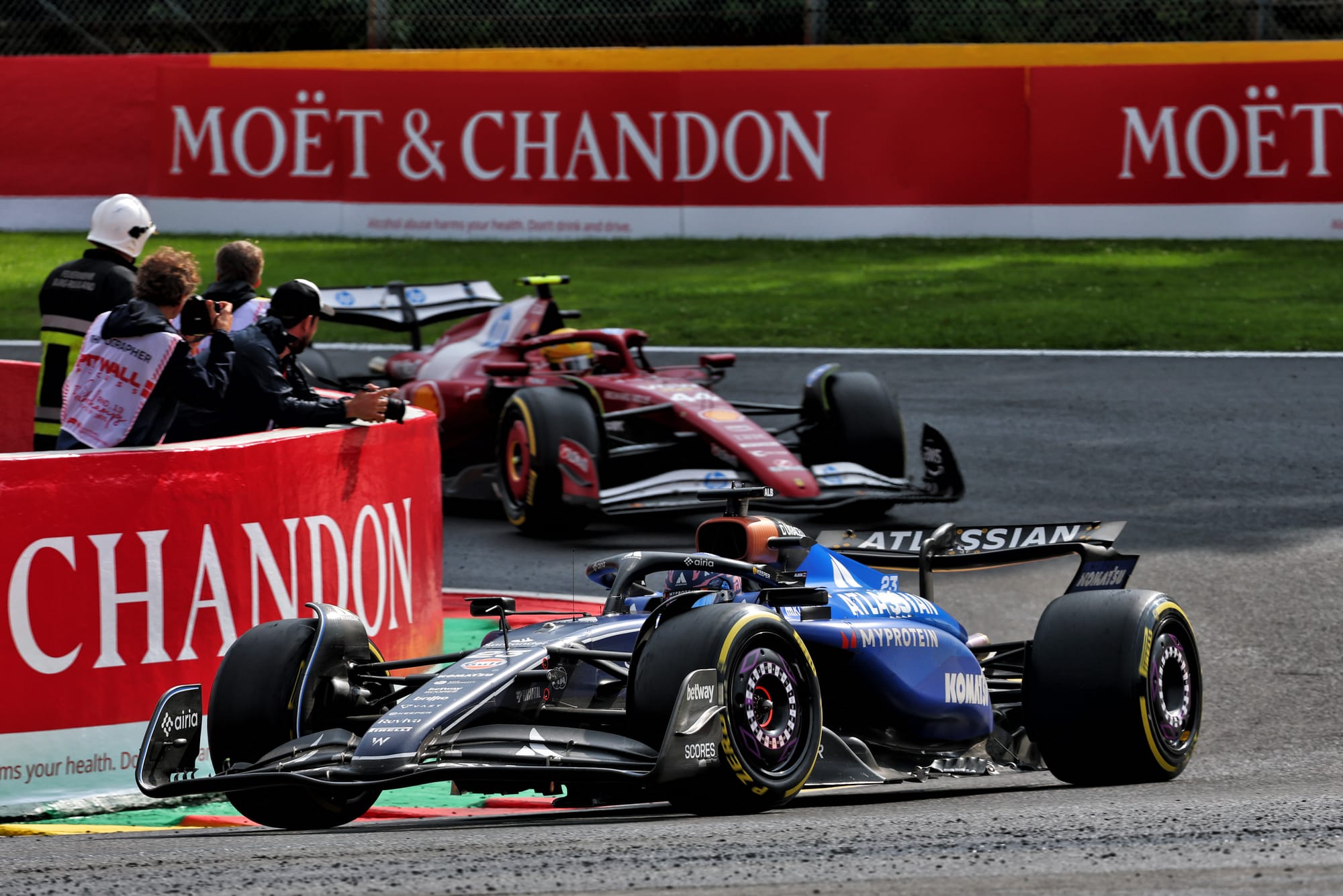
Having been F1's worst-scoring team in the midfield in the previous five races, Williams earned its biggest points total in more than two months.
Carlos Sainz was sixth in the sprint race while team-mate Alex Albon matched that result in the grand prix, 12 seconds clear of the next midfield runner, fending off Hamilton's Ferrari and finishing only five seconds off Russell's Mercedes.
Sainz had a weaker main qualifying, which led to a pitlane start to gamble on more downforce for a wet race that barely materialised, and meant he was never in points contention in the grand prix.
Still, a good haul across both days boosted Williams's advantage over next-best placed team Sauber to a healthier 27 points in the championship.
And the suite of upgrades it brought to Spa across the sidepod and floor appeared to work as expected, even if they've made the car trickier to drive.
"The package definitely helped us, we wouldn't have been sixth without it," was Albon's post-race verdict.
He thought it was too early to declare that Williams will be permanently back at the head of F1's midfield, but it's back giant-killing again and has emphatically stopped the rot.


